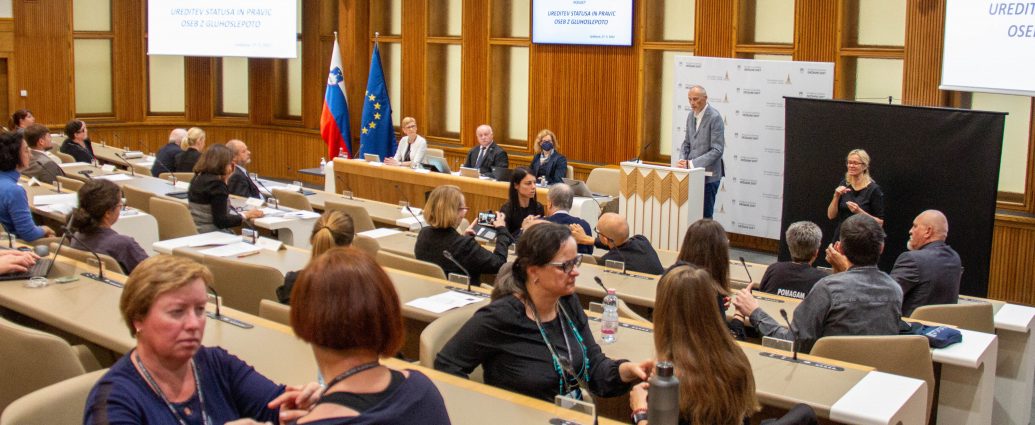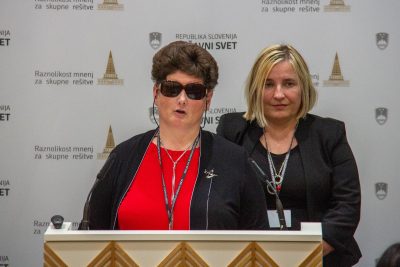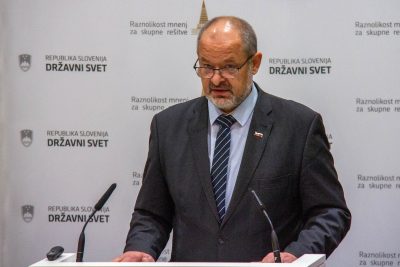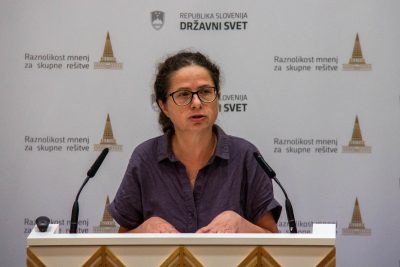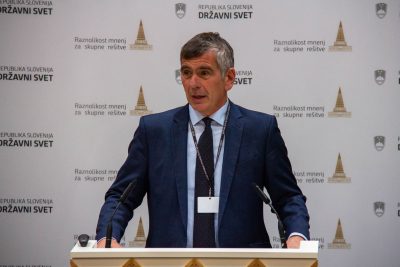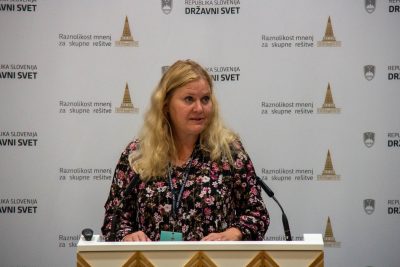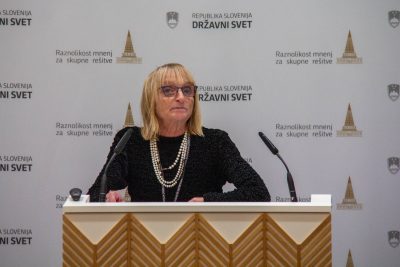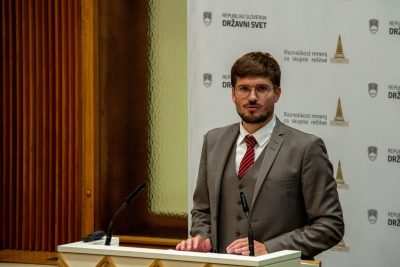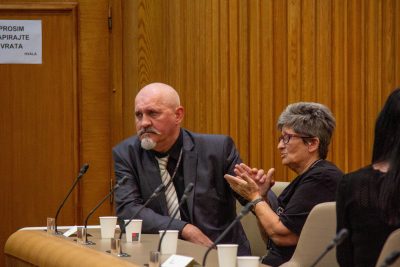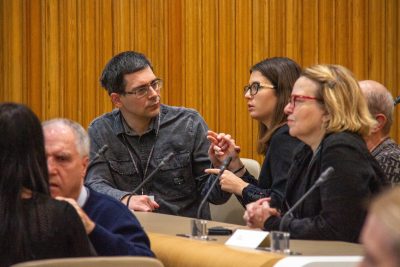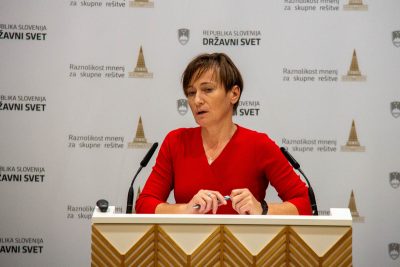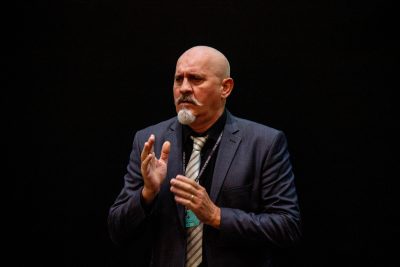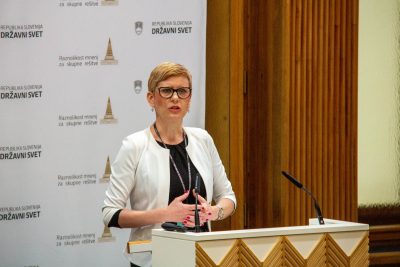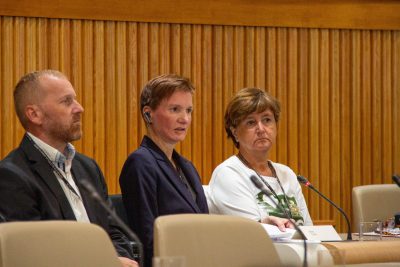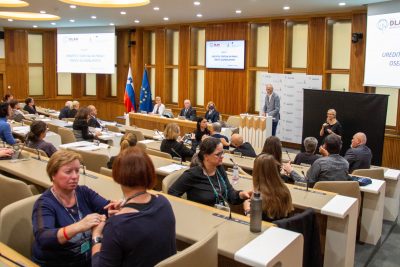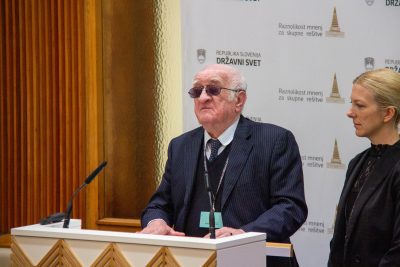On Tuesday, 27 of September 2022, the National Council of the Republic of Slovenia and the Deafblind Association of Slovenia DLAN, prepared a consultation entitled Regulation of the status and rights of people with deafblindness in the National Council Hall.
At this important event, the secretary of the Deafblind Association of Slovenia DLAN, Asst. dr. Simona Gerenčer, people with deafblindness and parents of children with deafblindness, presented a difficult journey with many obstacles, problems and cases of discrimination that they face and struggle with on a daily basis, because in Slovenian legislation and in society in general people with deafblindness are still not recognised as a group of people with an independent disability.
Renowned experts and representatives of ministries discussed the necessity of ensuring and enforcing the fundamental constitutional and legal rights of the people with deafblindness, including the right to use and learn their own language, the right to the informations in adapted communication modes, the right to be included in the educational process, the right to an independent life and full participation in society and the right to access to information and equal access to services.
Representatives of European and global organisations of people with deafblindness – the European Deafblind Union (EDbU), the World Federation of the Deafblind (WFDB) and Deafblind Ontario Services Canada – have also called for the legislative framework in this area.
Photographs: Benjamin Beci/Fixmedia, resource: Državni svet RS
Conclusions of the conference:
- Deafblindness is an independent, specific disability and not the sum of two separate disabilities.
- The concept of deafblindness is being redefined by following the Nordic definition of deafblindness, which defines deafblindness as a combined impairment of vision and hearing that is so severe that it is difficult for the senses to compensate for each other.
- Based on the redefinition of deafblindness, the status of people with deafblindness is regulated, which is harmonized in all legislative regulations.
- People with deafblindness are given the freedom to use and develop the language of the deafblind, which is their natural language.
- People with deafblindness and their relatives are provided the rights to training in the use and understanding of the language of the deafblind.
- People with deafblindness are provided their fundamental human rights, regardless of where they live:
- the right to be informed in the language of the deafblind, adapted to the individual’s understanding,
- the right to use the services of interpreters for people with deafblindness, and thus the right to adequate and accessible interpretation in all situations of life in a way of communication that is appropriate for them,
- the right to individual, comprehensive professional support and assistance,
- the right to the services of support persons, that enable more independent, active and equal integration into society,
- the right to more equal participation and treatment in all educational processes,
- the right to be included in all spheres of daily life and to personal development.
- Ensuring that children with deafblindness are treated early with a holistic approach, that early language development is provided for children with deafblindness and that appropriate adjustments are made for children with deafblindness in the learning process.
- Appropriate professional support is provided to relatives of people with deafblindness.
- Professional staff for working with people with deafblindness is strengthened and an appropriate number of interpreters for the deafblind and support persons are trained.
- The development of professional and scientific work in the field of deafblindness is enabled and supported.
- Spokeperson from the competent ministry should be provided, in particular the line ministry of Labour, Family, Social Affairs and Equal Opportunities, is consulted.
You are invited to watch the consultation in the video below:
Video: Benjamin Beci/Fixmedia, resource: Državni svet RS

